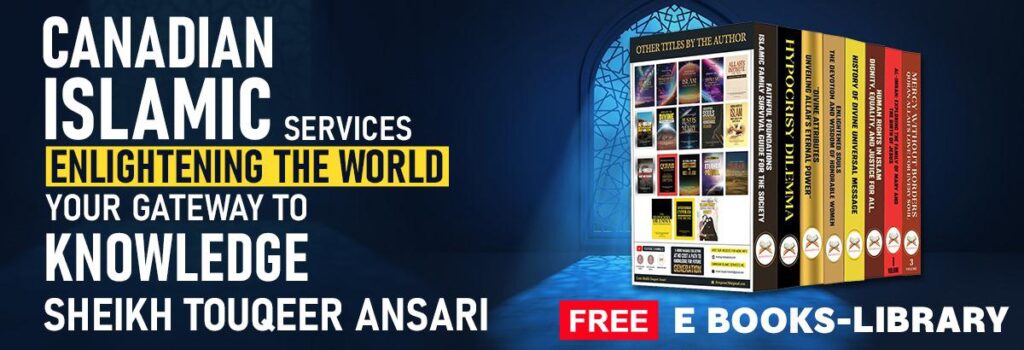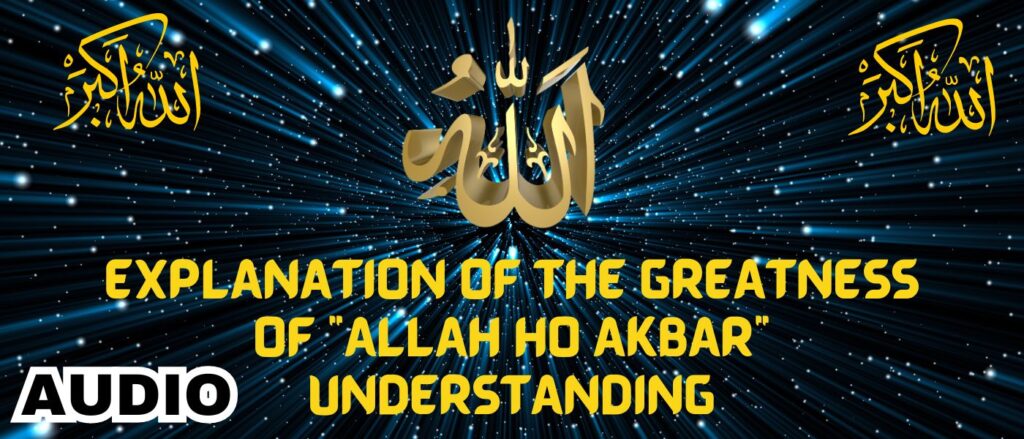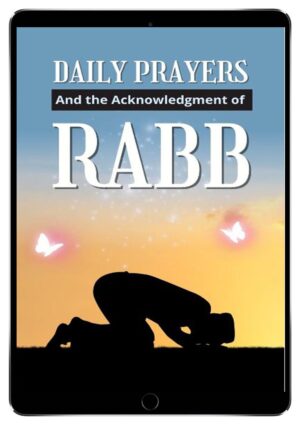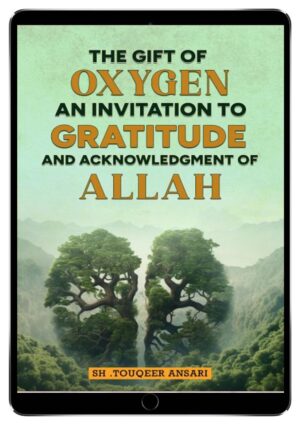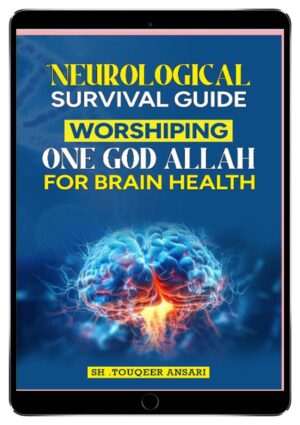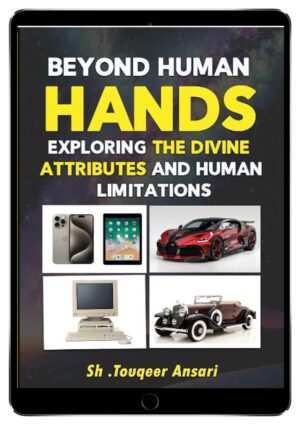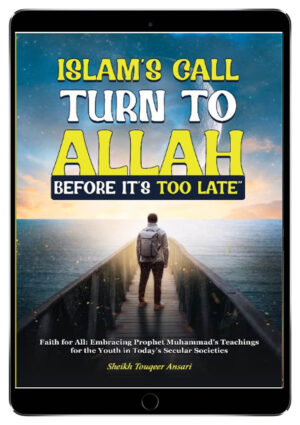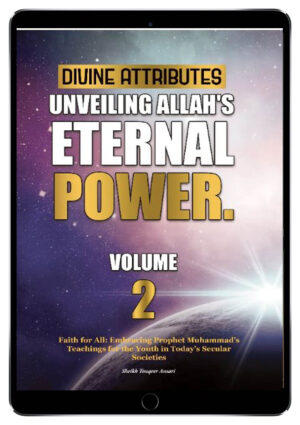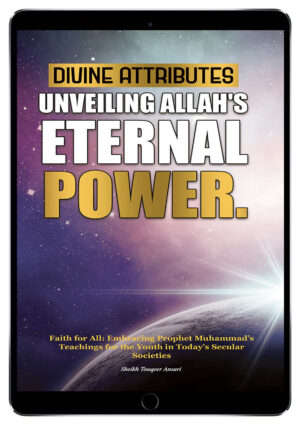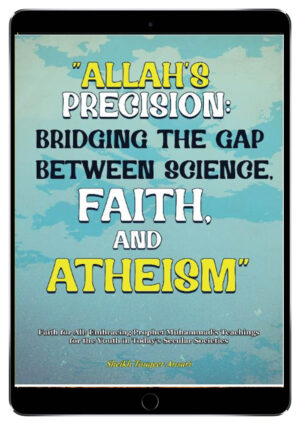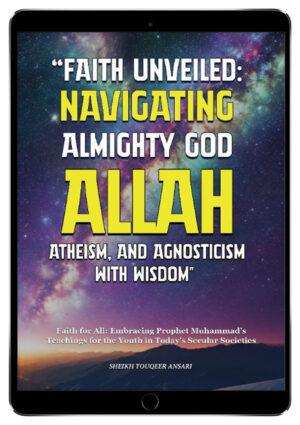Allah Ho Akbar: Allah Runs the System Without Any Help: The Significance of Divine Self-Sufficiency
In Islamic theology, the belief that Allah runs the entire system of the universe without any help underscores His absolute power and self-sufficiency. This concept signifies that Allah, the Creator and Sustainer of all existence, requires no assistance to manage the intricacies and vastness of the universe. It highlights His omnipotence, wisdom, and the perfection of His creation.
What Does It Mean That Allah Runs the System Without Any Help?
The assertion that Allah operates the universe independently conveys several profound theological and spiritual implications:
1. Divine Self-Sufficiency:
- Allah is Al-Ghani (The Self-Sufficient). He is free from any need or dependency. Unlike creation, which relies on numerous factors for survival and function, Allah’s existence and management are entirely independent.
- This self-sufficiency ensures that Allah’s actions are free from any external influence or deficiency.
2. Omnipotence:
- Allah’s power is absolute and all-encompassing. He is capable of managing the entire universe and all its complexities without requiring any help. This reflects His attribute of Al-Qadir (The All-Powerful).
- The seamless functioning of natural laws, the vastness of the cosmos, and the intricate balance within ecosystems all attest to Allah’s unparalleled power and capability.
3. Ultimate Wisdom:
- Allah’s knowledge is infinite and perfect. He is Al-Alim (The All-Knowing), aware of all that occurs in the heavens and the earth. His management of the universe is executed with perfect wisdom and precision.
- The harmony and order in creation are manifestations of Allah’s wisdom. Every aspect of the universe operates according to divine knowledge and decree.
4. Perfect Creation:
- Allah’s creation is flawless and does not require maintenance or correction from external sources. He is Al-Khaliq (The Creator) and Al-Bari (The Evolver), who designs and sustains everything perfectly.
- The perfection seen in the natural world, from the orbits of planets to the life cycles of organisms, reflects the meticulous and independent craftsmanship of Allah.
5. Human Perspective:
- For humans, recognizing Allah’s independent management of the universe fosters a sense of humility and dependence. It reminds believers of their own limitations and the importance of relying on Allah’s guidance and support.
- This belief nurtures trust in Allah’s plan and fosters a sense of peace, knowing that the universe is under the control of a just and wise Creator.
Conclusion
The concept that Allah runs the system without any help is a cornerstone of Islamic faith, emphasizing His self-sufficiency, omnipotence, wisdom, and perfection. It is a reminder of Allah’s ultimate authority and the intricate balance and order of His creation. For believers, this understanding deepens their trust in Allah and inspires a life of humility, dependence, and reverence.
Understanding "Allahu Akbar" Through Logic and Science: Demonstrating Allah’s Unparalleled Greatness
The phrase “Allahu Akbar,” meaning “Allah is the Greatest,” is a profound declaration of Allah’s boundless power and majesty. Unlike human endeavors in science, engineering, and technology, which are inherently limited and dependent on various resources and assistance, Allah’s capabilities are limitless and self-sufficient. This article explores how the phrase “Allahu Akbar” can be understood through logical reasoning and examples from various scientific and technological fields, demonstrating Allah’s unparalleled greatness.
The Essence of “Allahu Akbar”
1. Logical Reasoning:
Self-Sufficiency:
- Human achievements, whether in science, engineering, or technology, rely heavily on external resources, collaboration, and trial-and-error processes. In contrast, Allah’s actions and creations are self-sufficient and perfect from inception.
- For instance, human engineers need materials, energy, and tools to build machines. Allah, however, creates and sustains the universe without any need for raw materials or external help.
Omnipotence and Omniscience:
- Human knowledge and power are limited. Scientists and engineers constantly seek to expand their understanding and capabilities, yet they remain finite. Allah’s power (omnipotence) and knowledge (omniscience) are infinite, encompassing all that exists and transcending human comprehension.
- For example, while humans can design complex systems like computers or spacecraft, they cannot create life or control the fundamental laws of physics. Allah’s creation of life and the universe itself exemplifies His unmatched greatness.
2. Scientific and Technological Fields:
Physics and the Universe:
- The vastness of the universe, with its billions of galaxies, stars, and planets, showcases the grandeur of Allah’s creation. Human technology, despite its advancements, is incapable of fully exploring or comprehending the entirety of the cosmos.
- The precise laws of physics, governing everything from subatomic particles to massive celestial bodies, reflect a level of design and control that is beyond human reach. Allah, as the creator of these laws, exemplifies true greatness.
Biology and Life:
- The complexity and diversity of life on Earth, from single-celled organisms to complex multicellular beings, highlight the intricacy of Allah’s design. While humans can study and manipulate biological systems, they cannot create life from nothing.
- The process of evolution, genetics, and the functioning of ecosystems all point to a creator whose knowledge and power are unparalleled.
Engineering and Technology:
- Human-engineered systems, such as computers, buildings, and transportation networks, require constant maintenance and are prone to failure. Allah’s creation operates with precision and sustainability without the need for intervention.
- Natural systems like the water cycle, weather patterns, and geological processes function seamlessly and sustain life on Earth, illustrating a level of engineering that human technology can only aspire to imitate.
Examples Demonstrating Allah’s Greatness
1. The Human Brain:
- The human brain, with its billions of neurons and complex neural networks, is far more advanced than any computer humans have ever created. It highlights Allah’s supreme craftsmanship and intelligence.
2. The Ecosystem:
- Ecosystems are perfectly balanced systems where every organism plays a role in maintaining the stability and health of the environment. This balance is beyond the capability of human design and showcases Allah’s intricate planning.
3. The Cosmic Order:
- The precise orbits of planets, the stability of galaxies, and the expansion of the universe reflect a meticulous order and control that humans can observe but never replicate. Allah’s command over the cosmos is a testament to His ultimate greatness.
Conclusion
The phrase “Allahu Akbar” encapsulates the boundless power and majesty of Allah. Through logical reasoning and examples from various scientific and technological fields, it becomes evident that Allah’s capabilities are limitless and self-sufficient. Unlike human endeavors, which are inherently limited and dependent, Allah’s greatness is unparalleled and absolute. Recognizing this fosters a deeper appreciation of the divine and inspires humility and reverence in believers.
Understanding Allah’s Power Beyond Human Capabilities
Human science and engineering require resources, time, and effort to create even the simplest objects. For instance, constructing a building involves gathering materials, designing, and labor over months or years. In contrast, Allah can create anything instantaneously without needing any materials or time. As the Quran states, “His command, when He intends a thing, is only that He says to it, ‘Be,’ and it is” (Quran 36:82). This demonstrates Allah’s absolute power over creation.
Detailed Explanation:
1. Human Limitations:
Resource Dependency:
- Human creations are heavily dependent on the availability of resources. Building a structure requires concrete, steel, wood, and other materials, all of which must be sourced, transported, and prepared.
Time and Effort:
- Even with advanced technology, creating something substantial takes considerable time and effort. A simple house can take months to build, while more complex structures like skyscrapers or bridges can take years.
- Labor is another significant factor. Human endeavors require skilled workers, engineers, architects, and a coordinated effort to bring a project to fruition.
2. Allah’s Infinite Power:
Instantaneous Creation:
- Allah’s creation is not bound by the limitations of time, space, or materials. The divine command “Be” results in immediate creation, showcasing an unparalleled level of power and control.
- This concept is beyond human comprehension, as it defies the natural laws that govern human experiences and technological capabilities.
Divine Will:
- The act of creation by Allah is a manifestation of His will. There is no process, preparation, or delay. This immediate response to divine will highlights Allah’s sovereignty and supreme authority over all existence.
Scriptural Evidence:
- The Quran frequently emphasizes Allah’s power to create instantly. Surah Ya-Sin (36:82) states, “His command, when He intends a thing, is only that He says to it, ‘Be,’ and it is.” This verse underscores the effortless nature of Allah’s creative power.
- Other verses, such as Surah Al-Baqarah (2:117), echo this sentiment, reinforcing the belief in Allah’s omnipotence.
3. Reflection on Creation:
Cosmic Order:
- The universe’s intricate design, from the vast galaxies to the minute particles, reflects a level of creation that surpasses human understanding. The precision and harmony in the cosmos are testaments to Allah’s power.
Life and Nature:
- The diversity and complexity of life on Earth, the balance of ecosystems, and the natural processes that sustain life all point to a Creator whose capabilities are limitless.
- Unlike human creations, which require maintenance and are prone to failure, Allah’s creation operates flawlessly and sustains itself.
Conclusion:
The concept of instantaneous creation highlights the fundamental difference between human capabilities and Allah’s infinite power. While humans require resources, time, and effort to create, Allah’s command alone is sufficient to bring anything into existence immediately. This understanding elevates the recognition of Allah’s supreme power and fosters a deeper sense of humility and reverence among believers. Through such reflections, the phrase “Allahu Akbar” — “Allah is the Greatest” — resonates with profound truth, illustrating the incomparable greatness of the Creator.
Understanding Allah’s Power Beyond Human Capabilities
Humans need food, water, and oxygen to survive, all of which are sourced from the environment. Allah, on the other hand, is self-sustaining and provides sustenance to all living beings. The ecosystem’s balance, with plants producing oxygen through photosynthesis, animals relying on plants and other animals, and the water cycle maintaining hydration, is a testament to Allah’s perfect and continuous provision.
Detailed Explanation:
1. Human Dependency:
Basic Needs:
- Human survival is dependent on a continuous supply of essential resources. Food provides energy and nutrients, water is vital for bodily functions, and oxygen is necessary for cellular respiration.
- These resources must be sourced from the environment and are finite, requiring careful management and conservation to ensure availability.
Resource Gathering:
- Humans invest significant effort into gathering and producing these resources. Agriculture, water treatment, and air purification are all processes designed to ensure a stable supply of food, water, and air.
- This dependency highlights the limitations and vulnerabilities of human life, as disruptions in resource availability can lead to crises.
2. Allah’s Self-Sufficiency:
Self-Sustaining:
- Allah is completely self-sufficient and independent of any needs or resources. This divine attribute underscores Allah’s transcendence above all creation.
- As stated in Surah Al-Ikhlas (112:2), “Allah, the Eternal Refuge.” This verse highlights that Allah is free from all needs and is the ultimate provider and sustainer.
Provider of Sustenance:
- Allah’s provision extends to all living beings, maintaining the intricate balance of the ecosystem. Plants produce oxygen through photosynthesis, animals rely on plants and other animals for nourishment, and the water cycle ensures a continuous supply of fresh water.
- This seamless and efficient system of provision reflects Allah’s wisdom and mercy, sustaining life in a way that is beyond human capability.
3. The Ecosystem’s Balance:
Photosynthesis:
- Plants convert carbon dioxide and sunlight into oxygen and glucose through photosynthesis. This process not only sustains plant life but also provides oxygen, essential for the survival of animals and humans.
- The balance between oxygen production and consumption is maintained flawlessly, demonstrating a level of design and provision that is divine.
Food Chains:
- The interdependence of organisms within food chains and webs ensures the flow of energy and nutrients through ecosystems. Herbivores consume plants, carnivores eat herbivores, and decomposers break down organic matter, recycling nutrients back into the environment.
- This intricate network of relationships highlights Allah’s comprehensive provision and care for all forms of life.
Water Cycle:
- The water cycle, involving processes such as evaporation, condensation, and precipitation, ensures a continuous supply of fresh water. This cycle sustains life by providing water for drinking, agriculture, and various ecological processes.
- The efficiency and sustainability of the water cycle reflect Allah’s perfect management of natural resources.
Conclusion:
The concept of sustaining life without resources illustrates the fundamental difference between human dependency and Allah’s self-sufficiency. While humans require a constant supply of essential resources from the environment, Allah is self-sustaining and provides for all creation. The balanced and efficient functioning of ecosystems, such as photosynthesis, food chains, and the water cycle, is a testament to Allah’s perfect and continuous provision. Recognizing this divine attribute fosters a deeper sense of awe and gratitude towards Allah, reinforcing the belief in His unparalleled power and mercy. Through such reflections, the phrase “Allahu Akbar” — “Allah is the Greatest” — becomes a profound acknowledgment of Allah’s supreme greatness.
Understanding Allah’s Power Beyond Human Capabilities
Modern technology allows us to launch satellites and explore space, but these endeavors require extensive planning, fuel, and technology. Allah, however, maintains and controls the entire universe effortlessly. The precise orbits of planets, the expansion of the universe, and the laws of physics are all governed by Allah’s will. As stated in the Quran, “Indeed, Allah holds the heavens and the earth, lest they cease. And if they should cease, no one could hold them [in place] after Him” (Quran 35:41).
Detailed Explanation:
1. Human Achievements in Space:
Technological Advancements:
- Humanity has made significant progress in space exploration, launching satellites, and sending missions to other planets. These achievements represent the pinnacle of modern technology and scientific understanding.
- However, these endeavors require vast amounts of resources, precise calculations, and extensive planning. The successful launch and operation of a satellite involve coordination between scientists, engineers, and numerous support systems.
Limitations:
- Despite these advancements, human control over space is limited. Satellites require continuous monitoring, maintenance, and eventual replacement. Human space exploration is also confined to our solar system, with vast regions of the universe remaining beyond our reach.
- Any disruption, such as a failure in technology or depletion of resources, can jeopardize these missions, highlighting the fragility of human achievements.
2. Allah’s Effortless Control:
Divine Management:
- Allah’s control over the universe is absolute and effortless. The vast expanse of space, with its countless galaxies, stars, and planets, operates under precise laws established by Allah. These laws govern everything from the orbits of planets to the behavior of subatomic particles.
- The Quran emphasizes this divine control: “Indeed, Allah holds the heavens and the earth, lest they cease. And if they should cease, no one could hold them [in place] after Him” (Quran 35:41). This verse illustrates Allah’s unparalleled ability to sustain and manage the entire cosmos without any assistance.
Cosmic Order:
- The orbits of planets, the stability of stars, and the expansion of the universe are all manifestations of Allah’s will. These cosmic phenomena follow precise patterns and laws, such as gravity and the speed of light, that ensure the stability and order of the universe.
- Unlike human endeavors, which are prone to error and require constant intervention, Allah’s management of the universe is perfect and continuous. There is no need for adjustment or correction, as everything operates according to divine wisdom.
3. The Laws of Physics:
Natural Laws:
- The laws of physics, such as gravity, thermodynamics, and electromagnetism, govern the behavior of the universe. These laws are consistent and universal, allowing for the orderly function of all things.
- Allah is the author of these laws, and their perfect operation reflects His wisdom and power. The regularity and predictability of these laws enable the existence of life and the stability of the universe.
Scientific Understanding:
- Human understanding of these laws allows us to make predictions, develop technology, and explore space. However, our knowledge is limited, and new discoveries often reveal the vastness of what we do not know.
- Allah’s knowledge is infinite, encompassing all aspects of creation. The harmony and complexity of the natural laws are a testament to His omniscience and omnipotence.
Conclusion:
The concept of controlling the universe highlights the fundamental difference between human technological achievements and Allah’s effortless management of all creation. While humans require extensive resources, planning, and technology to explore a small portion of space, Allah maintains and controls the entire universe with absolute ease. The precise orbits of planets, the expansion of the universe, and the consistent laws of physics all demonstrate Allah’s unparalleled power and authority. Recognizing this divine control fosters a deeper sense of awe and reverence towards Allah, reinforcing the belief in His supreme greatness. Through such reflections, the phrase “Allahu Akbar” — “Allah is the Greatest” — becomes a profound acknowledgment of Allah’s infinite power and majesty.
Healing and Regeneration in hand of Allah
Medical science has made significant advances in healing and regeneration, such as organ transplants and stem cell therapy. These breakthroughs have significantly improved the quality of life and survival rates for many patients. Organ transplants can replace failing organs, giving patients a new lease on life, while stem cell therapy holds the promise of regenerating damaged tissues and organs.
However, these processes are limited and dependent on technology, medical knowledge, but all systems work by the command of Allah and we should not forget sometimes the availability of donors. For instance, organ transplants require a suitable match to avoid rejection, and the recovery process can be long and complex. Stem cell therapy, while promising, is still in its early stages and comes with its own set of challenges, such as ensuring the safe and controlled differentiation of stem cells into the desired cell types.
In contrast, Allah’s power to heal and regenerate is unlimited and not dependent on any material means. The story of Prophet Ayyub (Job) is a profound example of divine healing. Prophet Ayyub endured severe illness and suffering, losing his health, wealth, and family. Despite his immense hardship, he remained patient and faithful to Allah. In response to his unwavering faith, Allah commanded the earth to bring forth a spring of water, instructing Ayyub to wash in it. Upon doing so, Ayyub was miraculously healed of his afflictions. The Quran narrates this story in verses 21:83-84:
“And [mention] Job, when he called to his Lord, ‘Indeed, adversity has touched me, and You are the Most Merciful of the merciful.’ So We responded to him and removed what afflicted him of adversity. And We gave him [back] his family and the like thereof with them as mercy from Us and a reminder for the worshippers [of Allah].”
This story illustrates that Allah’s ability to heal and regenerate is beyond human comprehension and capabilities. It serves as a reminder of His boundless mercy and power, encouraging believers to maintain their faith and trust in Him, regardless of their circumstances.
Other examples of divine healing and regeneration in Islamic tradition include:
Prophet Isa (Jesus): According to the Quran, Prophet Isa performed miracles by Allah’s permission, including healing the blind and the lepers and bringing the dead back to life. These miracles are mentioned in several verses, such as Quran 3:49, where Isa says, “I heal the blind and the leper, and I give life to the dead – by permission of Allah.”
Musa’s (Moses) Hand: When Prophet Musa was sent to Pharaoh, one of the signs given to him by Allah was the ability to place his hand under his arm and bring it out white and shining without any disease (Quran 20:22). This miraculous transformation was a sign of Allah’s power and a challenge to Pharaoh’s magicians.
Luqman the Wise: Although not a prophet, Luqman is mentioned in the Quran for his wisdom. His story is often associated with the understanding that true wisdom and healing come from Allah. While Luqman’s narrative does not specifically mention miraculous healing, his wisdom is seen as a form of divine guidance that can lead to spiritual and sometimes physical well-being.
These examples underscore the belief that Allah’s capacity to heal and regenerate transcends human limitations and serves as a powerful testament to His mercy and omnipotence.
Buy These Books from Amazon or Read here for Free
